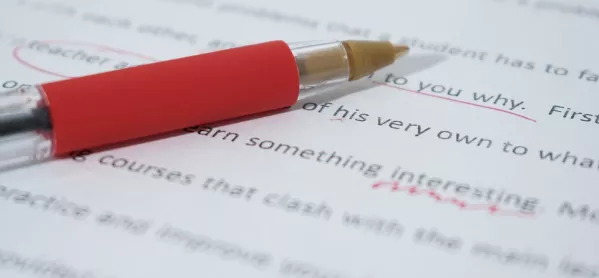Having previously endured the snore-worthy essay introductions of my pupils and then endeavoured to do something about it, I was pleasantly surprised to find that a focus on introduction-writing had made a real difference to the essays that my pupils were producing. Problem solved, right?
Wrong. The next issue I faced when it came to essay-writing was the truly shocking conclusions that some of my students were writing. Often these conclusions began simply “in conclusion”, or if the student was feeling fancy, “to conclude”, and went on to say a whole lot of nothing.
Some included quotations, others attempted some form of summary, while the rest just appeared to have put a series of random words down on paper that was only very loosely connected to the essay they had just laboured over. What an awful final impression to leave the examiner with, I told them.
GCSE essays should ‘deliver judgement’
Now, the purpose of a conclusion differs based on what you’re writing. That much is clear. The purpose of most conclusions, however, is to present some kind of assumption or decision about an aspect of the text. More accomplished writers will attempt to have justified or even proven something by the end of their essay.
Having taught my students to write a two-sentence introduction in which they posed a hypothesis based on the writer’s intention, my goal in teaching them to write a conclusion was for them to be able to deliver some kind of judgement.
Once again, my advice was that they write just two sentences. The first sentence should be evaluative, ensuring a clear comment is made about the writer’s intention.
The second sentence should present what the writer is warning against. In the vast majority of English GCSE texts, I believe it is usually fair to say that one of the author’s intentions is to present some form of warning to their audience.
‘Book-end’ the essay
Focusing the second sentence on what this warning is allows the student to end their essay in a memorable way, while also offering a decisive, critical comment on the focus of the question.
For example, a question based on morality in An Inspector Calls could have an introduction as follows:
Sentence 1: Often, it is assumed that a Christian society will be a moral one.
Sentence 2: In An Inspector Calls, Priestley presents an Edwardian England that does not appear to allow morality to interfere with the avaricious pursuit of wealth, status and privilege, therefore encouraging us to question the purported moral superiority of characters like the Birlings.
A conclusion to match would go as follows:
Sentence 1: Priestley’s scathing critique of Edwardian England is convincing and depicts a morally corrupt society that puts on airs, purporting to be better than it is.
Sentence 2: However, the consequences of the characters’ actions are dire and Priestley brutally serves them up as a stark warning to his post-war audience against the moral turpitude that goes hand in hand with the privileged mindset of the wealthy Edwardians.
By simplifying the process of how to effectively book-end the essay, I have been able to support my students in producing some excellent, focused essays. We have the introduction and conclusion down - now the only thing left to work on is what goes between.
Sana Master is an English teacher at a school in Yorkshire. She tweets @MsMaster13
Want to keep up with the latest education news and opinion? Follow Tes on Twitter and like Tes on Facebook




